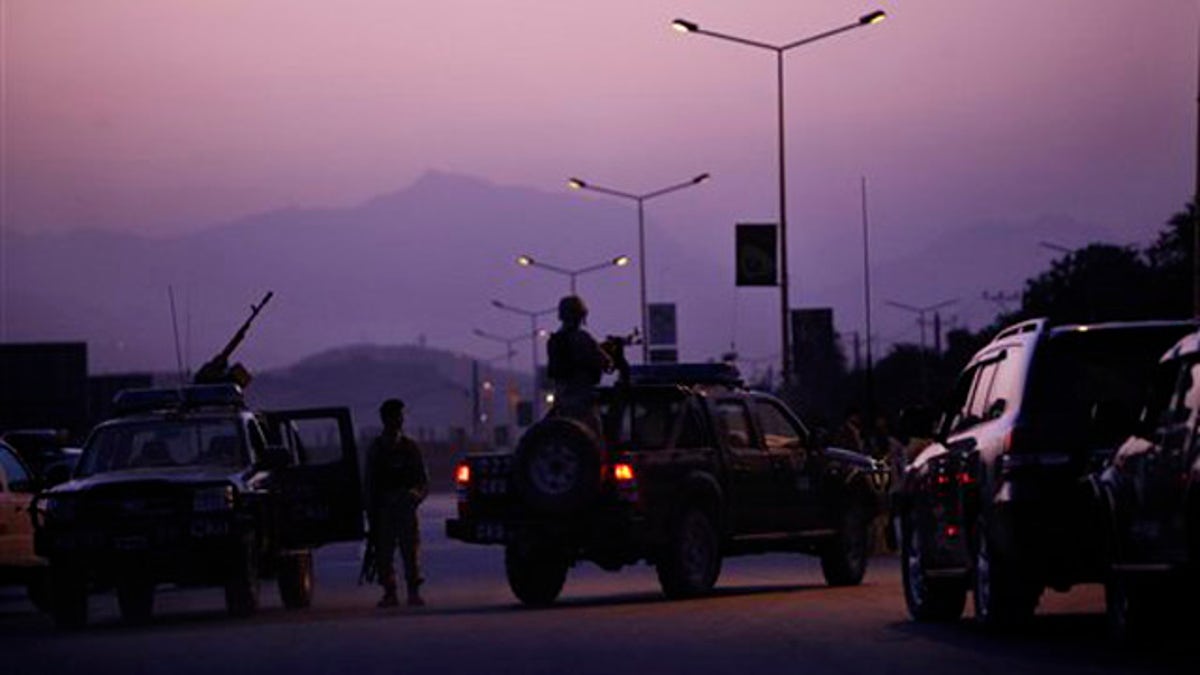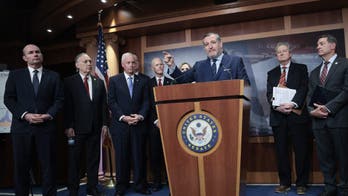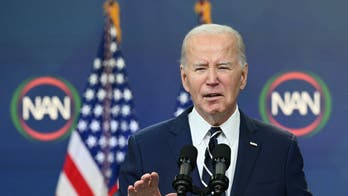
An Afghan army officer mans a heavy gun mounted to a vehicle at the entrance to the InterContinental hotel, which came under attack in Kabul, Afghanistan, June 29. (AP)
WASHINGTON -- Sens. John McCain and Lindsey Graham, visiting U.S. troops in Afghanistan over the Fourth of July weekend, used the term "unnecessary risk" on Sunday to describe President Obama's decision to remove 10,000 troops from Afghanistan by the end of the year.
The lawmakers said the president ignored the recommendations of military commanders and steered his own course on fighting the war against the Taliban and Al Qaeda fighters there.
"What I have seen and heard here, both from Afghans as well as a number of Americans, is that it is an unnecessary risk. It's not recommended by any of the military," McCain, R-Ariz., told CNN. "And I hope that it will work out, but it certainly deprives us of the necessary troops that we need for the second fighting season."
"The commander in chief can make any decision he would like. He should listen to his military commanders," said Graham, R-S.C., who appeared on "Fox News Sunday" with Sen. Joe Lieberman, D-Conn., who is also traveling in Afghanistan.
"All the generals say they will stand by this decision. That's their job," Graham said, adding that it has "changed the momentum" and left Afghans wondering what the U.S. is thinking. "I just hope and pray that this works out well."
Last month, Obama ordered a troop reduction of 10,000 by the end of the year and another 23,000 by September 2012.
Lt. Gen. John R. Allen, the Marine general nominated to be the next top U.S. commander in Afghanistan, is expected to carry out the president's order to begin withdrawing U.S. troops. But in testimony to the Senate last week, he admitted that the drawdown schedule is more aggressive than the military had anticipated. He cautioned that successfully winding down the war will require new progress on a wide front, including more help from allies and less Afghan corruption.
In 2009, Obama agreed to send 30,000 additional troops to the region to pacify areas in the Taliban's southern heartland and other dangerous areas. U.S. military officials have predicted more tough fighting through the summer as the Taliban try to regain territory they have lost.
McCain said the troops have had "enormous success over the past year" on the battlefield, particularly taking out a lot of mid-level Taliban in Afghanistan. However, he said there is no indication the Taliban will reach political reconciliation with Afghanistan's government.
"There has been no signs whatsoever. When the Taliban are ready to talk peace, it will be when they are convinced that they can't achieve their goals on the battlefield," he said.
McCain added that unless the Pakistanis eliminate the links between its intelligence services and the Haqqani Network, which is linked to the Taliban, the Taliban will remain a problem.
The Associated Press contributed to this report.




